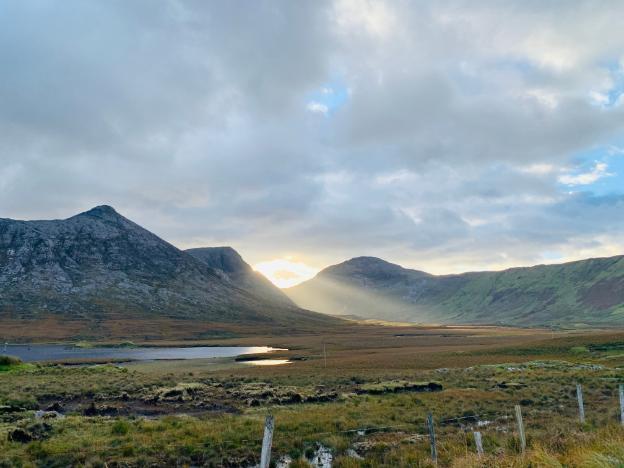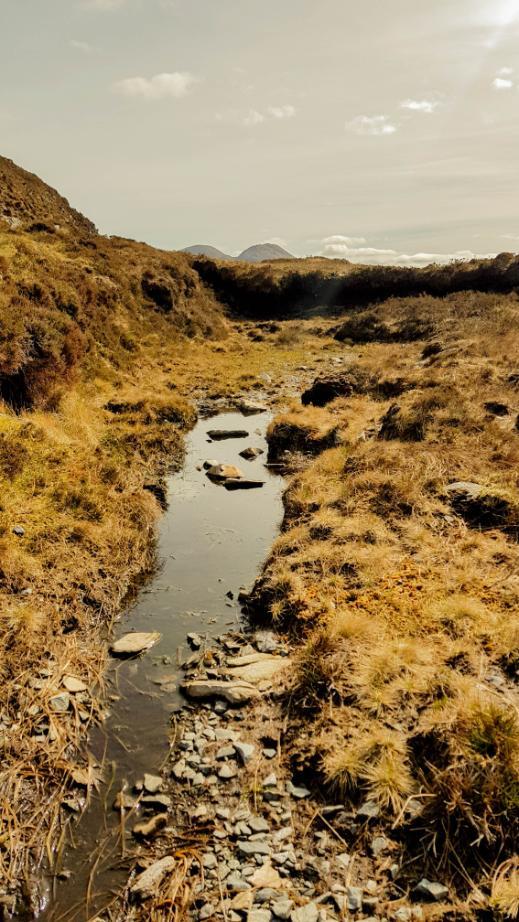Summary
For more than 20 years, Dr Florence Renou-Wilson has examined the workings of Ireland’s peatlands. These biodiverse natural ecosystems cover around a fifth of the country’s land area and are an important resource for tackling climate change and reducing flood risk.
Leading three major research projects, she has assessed the state of Ireland’s peatlands, explored attitudes towards them, and identified how they can be restored and protected. Recommendations arising from this work directly led to the Government creating its first National Peatlands Strategy. Through collaboration and outreach, Dr Renou-Wilson and colleagues are ensuring that the public and industry benefit from their research findings as well.
Together, these efforts are helping to conserve Ireland’s last true wilderness, tackling the climate crisis, protecting rare habitats and species, and preserving an integral part of Irish culture and history.
Research description
Formed over thousands of years, peat is a type of soil made from partially decayed organic matter. Around 20% of Ireland’s land area is covered by peatland – in the form of bogs and fens – and it’s one of the country’s most precious natural resources.
Peatlands are highly effective natural systems for capturing and storing carbon, and therefore play a vital role in tackling the climate crisis. They boast exceptional biodiversity, they help regulate water flows, and they’ve been an important part of Irish culture for millennia.
Because they touch so many sectors of society, peatlands are difficult to manage. Research by Dr Florence Renou-Wilson seeks to remedy this. By creating policy-relevant evidence, in collaboration with a wide range of stakeholders, she has spent the past 20 years improving our understanding of these fragile ecosystems and how we can look after them. She has done so by leading three major multidisciplinary research projects:
 BOGLAND (2007-2013)
BOGLAND (2007-2013)
Funded by the Environmental Protection Agency (EPA), the BOGLAND project revealed the global significance of peatland and showed that efforts to manage them had been unsustainable. It assessed the condition of Ireland’s peatland, explored attitudes towards them, and made 10 critical, evidence-based recommendations, including the need for a National Peatland Strategy, restoration of protected peatlands, and a review of the peat industry.
NEROS (2013-2015)
The NEROS project, also funded by the EPA, explored the climate and biodiversity benefits of “rewetting” peatlands — restoring natural water flow and saturating previously drained peatland, by blocking drainage channels for example. The team showed that rewetting peatland can reduce greenhouse-gas emissions and quickly bring back peat-forming vegetation and associated rare biodiversity. They also identified which peatland sites would benefit most from this.
AUGER (2014-2020)
In a third EPA-funded project, AUGER, Dr Renou-Wilson and her team carried out a nationwide survey of 50 bogs to document the properties of various types of peatlands. They showed how different peatlands are affected by different management options, and the impact this has on carbon and greenhouse-gas emissions. They thereby quantified the impact of human activities on the properties of peat soils and their climate footprint. The variety of peat soils identified through this research clearly supports the need for a site-by-site approach to rewetting.
Dr Renou-Wilson’s work continues with SWAMP (Strategies to improve Water Quality from Managed Peatlands) and a new project called Peat-Hub-Ireland, which will collate evidence to move towards sustainable management of peatland.
 Dr Renou-Wilson has used her findings and expertise to contribute to international efforts to tackle climate change. For example, she was a lead author of the 2014 Intergovernmental Panel on Climate Change (IPCC)
Dr Renou-Wilson has used her findings and expertise to contribute to international efforts to tackle climate change. For example, she was a lead author of the 2014 Intergovernmental Panel on Climate Change (IPCC)